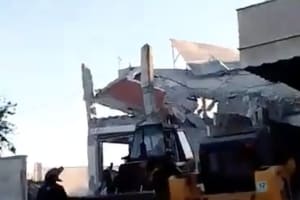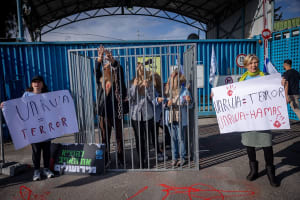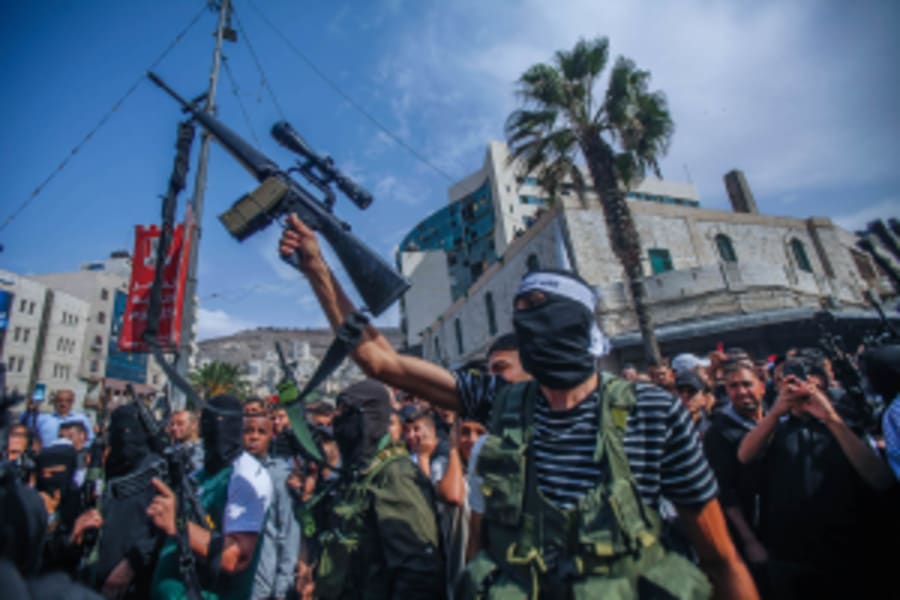Iran threatens Israel with retaliation for Damascus strike amid international condemnation
Israel raises alert level in embassies around the world

The Iranian regime is threatening retaliation one day after seven members of its Islamic Revolutionary Guard Corps (IRGC), including a high-ranking general, were killed in a strike near the Iranian embassy in Damascus that was widely blamed on Israel.
“The Islamic Republic reserves its rights to take reciprocal actions and will decide the type of reaction and punishment of the aggressor,” Nasser Kanaani, Iran's Foreign Ministry spokesman, said in a statement.
Iranian President Ebrahim Raisi said the Israeli attack on the consulate wouldn’t “go unanswered.”
"After repeated defeats and failures against the faith and will of the Resistance Front fighters, the Zionist regime has put blind assassinations on its agenda in the struggle to save itself," Raisi said according to his office.
Iran’s Supreme Council for National Security also announced that “appropriate decisions were made” during an emergency meeting.
Hezbollah, the Iranian regime’s main proxy in Lebanon, confirmed that one of its operatives was also killed in the strike and vowed to punish Israel for the “crime.”
Israel raised the alert level in its diplomatic missions worldwide, out of concern that Iran might attack Israeli embassies and institutions, as it has done in the past, to retaliate for the alleged Israeli strike.
On Tuesday afternoon, an apparent airstrike flattened a building adjacent to Iran’s embassy in the Syrian capital of Damascus, with Syria and Iran immediately accusing Israel.
The IRGC later confirmed that seven of its members were killed, including Mohammad Reza Zahedi and his deputy, Mohammad Haj Rahimi, both of whom commanded the unit responsible for coordinating Iran's activities against Israel from Lebanon and Syria.
Contrary to earlier reports, the attacked building wasn’t an embassy or a consulate but the local headquarters of the IRGC, IDF Spokesman Brig.-Gen. Daniel Hagari told CNN, without taking responsibility for the strike.
“In the last 6 months, Iran has been dragging the region into escalation,” Hagari added. “It is the main player, and it uses its proxies in Lebanon, Syria, Iraq and Yemen.”
The strike near the Iranian embassy drew international condemnation, including from Saudi Arabia, the United Arab Emirates, Egypt, Jordan and Qatar, as well as Russia and China. Following a Russian request, the UN Security Council will meet on Tuesday to discuss the issue.
Soon after the strike, the U.S. sent a message to Tehran denying any involvement or prior knowledge of the attack, U.S. officials told the Axios news outlet, indicating that the Biden administration is deeply concerned that an Iranian response could cause further turmoil, and possibly lead to attacks against U.S. troops in the region.
While Israel didn’t ask the United States for a green light, it did notify its main ally while its planes were already in the air, Israeli and U.S. officials told Axios.
Later on Monday evening, several drones attempted to enter Israel from Syria and were shot down by IDF aerial defenses. Another drone attack was detected and thwarted by U.S. troops at the at-Tanf base in Syria, a U.S. defense official said.
Zahedi’s elimination followed the killing of Razi Mousavi, who served under him, in Damascus last December and represents the most significant loss for the Iranian regime since last October. Zahedi was among several senior Iranian military figures sanctioned by the U.S. in 2010 as a supporter of terrorism.
We recommend to read:

The All Israel News Staff is a team of journalists in Israel.

















